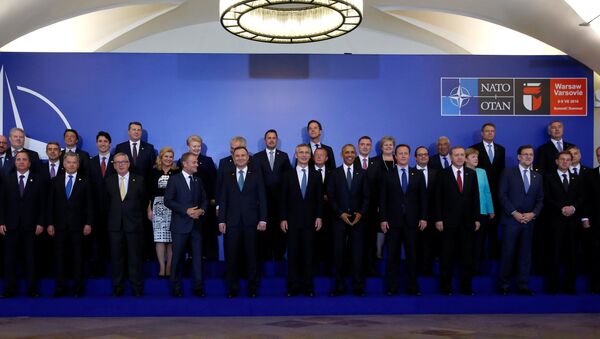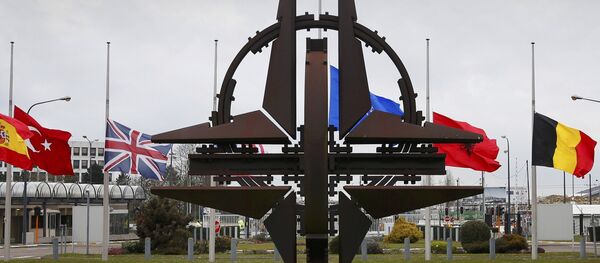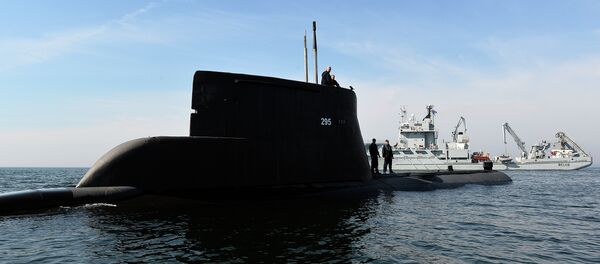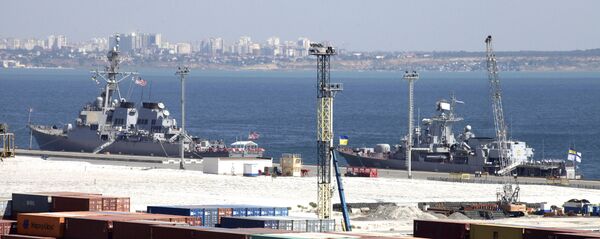James Carden, a contributing writer at the Nation, named Italian Defense Minister Roberta Pinotti, German Foreign Minister Frank-Walter Steinmeier, French President Francois Hollande and former Soviet leader Mikhail Gorbachev as "prominent dissenters from NATO's new Cold War consensus."
The main reason behind this trend, according to Carden, has to do with the fact that NATO's strategy is based on a false premise that supposedly "aggressive" Russia poses a threat to its neighbors and beyond.
"NATO is addressing a phantom problem of Russian revanchism rather than an actual one: Ukrainian civil war," the former advisor to the US-Russia Presidential Commission at the US State Department said. "Increasing NATO troop levels in Poland will neither put an end to the fighting nor help the millions of non-combatants most in need."
However, this is not what these steps have achieved. In fact, the bloc's latest activities have caused tensions unseen for decades. "We have not been in such a dangerous place since Europe 1913 or 1939," Tony Kevin, Australia's former ambassador to Poland and Cambodia, wrote for the Guardian.
"NATO commanders say this can be safely managed. But I have no confidence in this. Hostilities could begin by design or accident, or local provocation by warmongering idiots that could quickly go nuclear," he added.
Elites in the four former Soviet states have been particularly vocal about the non-existent threat emanating from Moscow. Along with hardliners in Washington, they have largely been the driving force behind NATO's increasing assertiveness.
As a result, the bloc "has become an insuperable obstacle toward the formation of what Europe needs most, an inclusive security architecture that takes into account the national-security interests of all parties on the continent, from Lisbon to Vladivostok," Carden observed.
For its part, Moscow has always maintained that it is open for a dialogue and prefers to sort out differences solely through diplomatic means.





